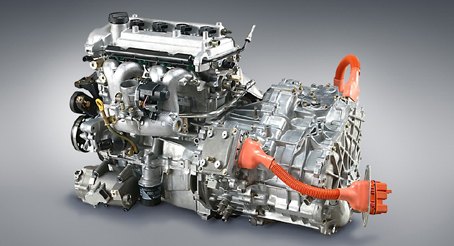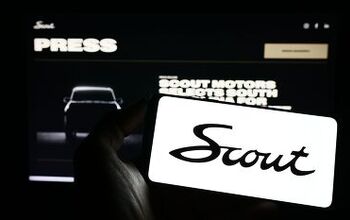Toyota Loses Bid To Dismiss Hybrid Patent Lawsuit
The long-simmering dispute over hybrid technology patents between Toyota and the Florida engineering firm Paice is rolling on, as Bloomberg BusinessWeek reports that a judge from the U.S. International Trade Commission refused to dismiss the Paice suit. That suit builds on an earlier ruling requiring Toyota to pay Paice royalties on its Prius, Highlander Hybrid and RX400h sales (Toyota is challenging the amount of these royalties, ordered by a federal judge in Texas).
Paice is also seeking an ITC ban on US sales of these vehicles, and by refusing to dismiss Paice’s case, the ITC leaves the door open for such a ban. A hearing before the ITC is scheduled for July 19th. Needless to say, a US-market ban on sales of Toyota hybrids would be a huge setback for the Japanese automaker, eliminating its major technological advantage from the marketplace. Paice is also seeking a patent ruling against Ford for its use of hybrid technology.
More by Edward Niedermeyer


































Comments
Join the conversation
I am just happy Paice’s is an American company. For once we can hold our heads high instead of being ashamed of lack of innovation at GM, Ford, and Chrysler.
The IP system is supposed to provide sufficient incentive to keep technology moving forward whilst ALSO in so doing providing for the greatest common good over time. Like most things, it is a balancing act when done well. In modern times the US' version of the system has become more of a lottery and a bludgeon than it has been a tool for advancing technology in the broadest sense. In any case, my view is that one of the reforms needed for patent and copyright law is a "use it or loose it" requirement similar to that which exists for trademarks. No one should be able to use a patent for the primary purpose of keeping a technology OFF the market, but that is in fact often done under the current system. Furthermore, the value of an invention is more in the putting it into production and getting people to like it enough to buy it than it is in the mere idea. Novel ideas are much more easy to come up with than is the commercialization of them. Imagine a world where someone had managed to get a patent on the idea of using one website to find information on other websites. Would we be better off if company XYZ controlled the patent to internet searches?
Submarining should be in decline because of two patent reforms implemented a few years ago: 1. Instead of being good for 17 years from issue patents are now good for 20 years from filing, which lessens the incentive to keep a patent in prosecution for years while waiting to see which way trends are going (Jerome Lemelson, the pioneer of patent trolling was famous for this) 2. Patent applications now published 1 year from filing so you can't keep your submarine patent hidden while waiting for the right time to pounce.
John Horner and psarhjinian are absolutely correct here. The patent system wasn't designed for the use it sees today. The noble idea of of promoting progress has been twisted and now harbors companies like Paice, whose actions only hurt the public and the industry. Just take a look at their company website and you will find that, with the exception of two items, the only thing they have to post in their news section are their various IP lawsuits. They are practically advertising their misuse of the patent system! The case of hybrid patents is especially frustrating when you consider that the first patent on a hybrid drive system was granted to Henri Pieper in 1909 (US No. 288,181). Even if we are to say that the '181 patent is too old to be considered relevant prior art (which I wouldn't) there are many more recently patented parallel systems which are prior to any of Paice's patents. This report from M-CAM, Inc. gives some visibility into the world around Paice's patent No. 5,343,970, which Paice cites in it's recent suit against Ford. Until the abuses of the system become more widely known, redundant patents will continue to be granted and non-operating entities like Paice will be allowed to continue their harmful, greedy practices.